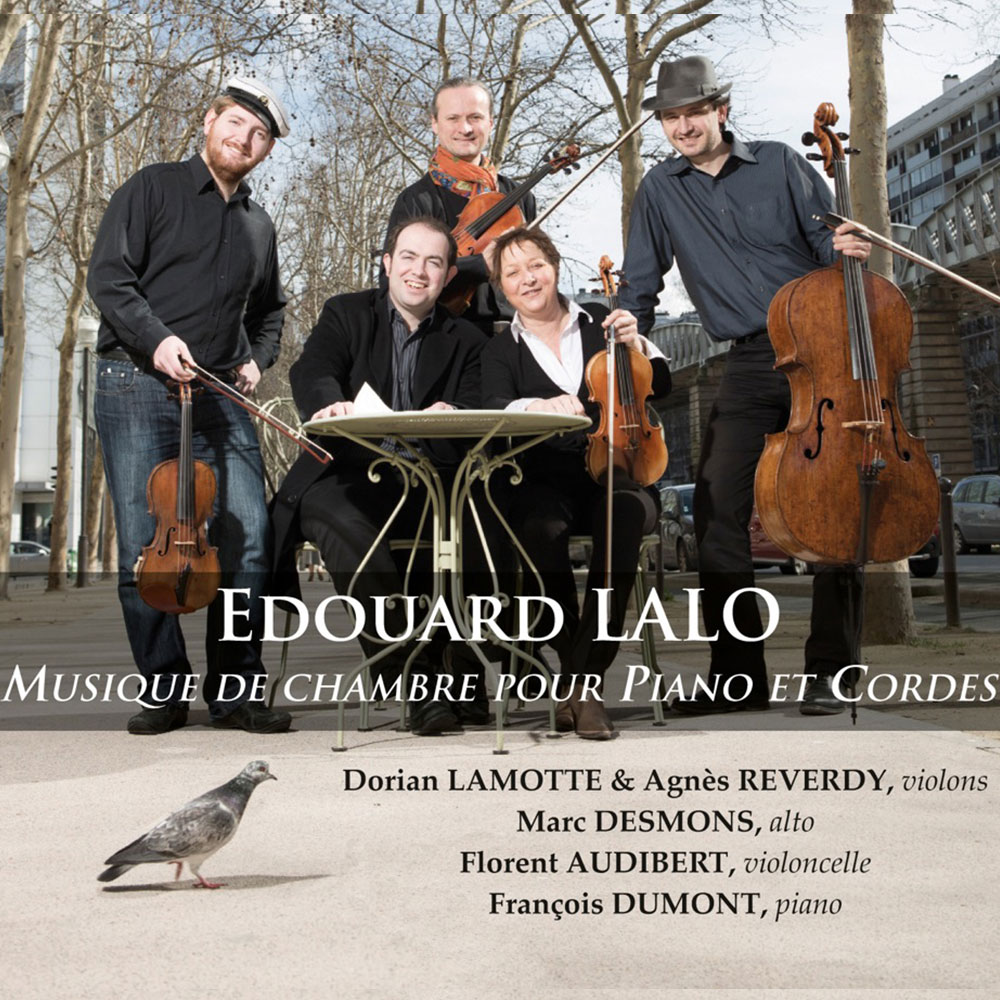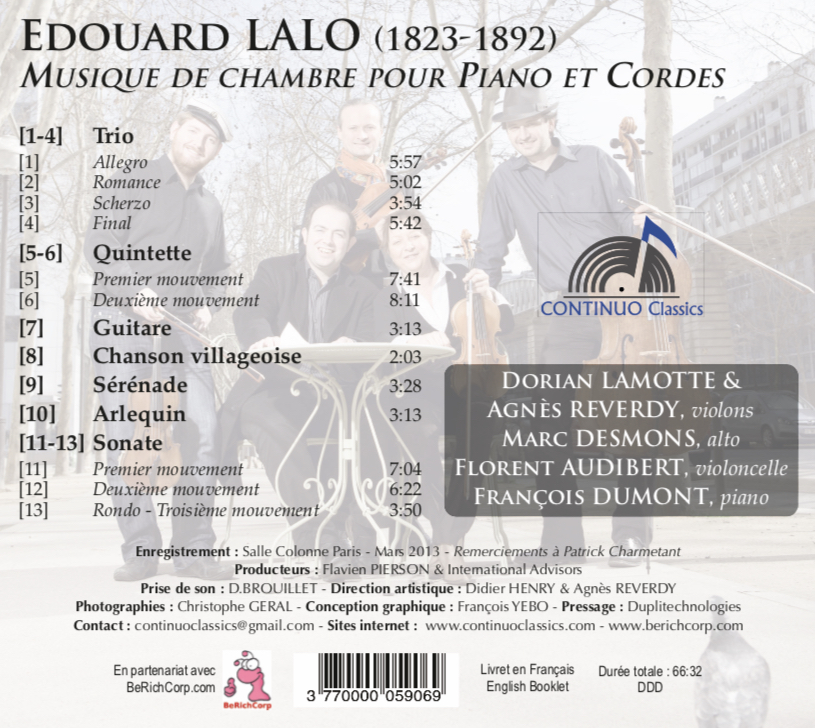Cet enregistrement offre la première gravure mondiale d’une oeuvre demeurée jusqu’à présent inédite mais dont une copie avec corrections autographes, conservée à la Bibliothèque Nationale, avait déjà attiré l’attention de Joël-Marie Fauquet, spécialiste français du compositeur. Il s’agit du Grand Quintette en la bémol pour Piano, 2 Violons, Alto et Violoncelle, dédié à Ernest Lubeck.
“Edouard Lalo, éminent représentant de la musique romantique française, est très célèbre de nos jours. Le grand public comme les initiés connaissent sa Symphonie Espagnole, créée par le violoniste Pablo de Sarasate, mais également son ballet Namouna ou son concerto pour violoncelle. Et si son quatuor à cordes est moins souvent offert, ses trios et sonates sont régulièrement données en concert. C’est vers cet aspect du célèbre compositeur que se tourne disque, centré sur une oeuvre principale de l’auteur. Il m’est apparu bouleversant et essentiel de tenir une oeuvre qui n’a peut-être jamais été jouée, en tout cas pas au XXe ou XXIe siècle, et urgent de l’éditer, de la travailler, et de l’enregistrer.” Dorian Lamotte
This recording presents the world premiere of an inedited copy, bearing autograph corrections, kept at the French National Library, which once attracted the attention of musicologist Joel-Marie Fauquet, a Lalo’s specialist. This is the Grand Quintette in B flat for Piano, 2 Violins, Viola and Cello, dedicated to Ernest Lubeck.
In a letter to Arthur Pougin, Lalo (10 December 1873) tells us that he had written two quintets still unpublished (sadly the first one seems lost forever). Another letter to Ferdinand Hiller (November 5, 1862) further says that "[...] still sick, I’m finishing an Adagio and Allegro for piano and string
quartet." Finally, a letter to the same (December 1862) writes: "I'll have a Piano Quintet Fantaisie, performed in a concert on February 13, should it be a success, it will be published this winter, otherwise I’ll keep it in my stash.” Coincidentally, it was in 1862/1863 that Clara Schumann performed in Paris alongside the Armingaud Quartet.
"The Quintet for piano and strings, powerfull work in two dense movements opposed as two blocks, from now fully independent of any model, is for amateur of chamber music a revelation of essential interest. The five musicians are perfectly up to this dense, thick and often touchy music, and we can not be too congratulate them with having resuscitated this admirable Quintet".
Jacques Bonnaure - DIAPASON, February 2014


